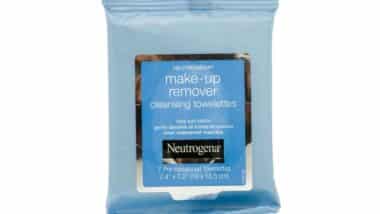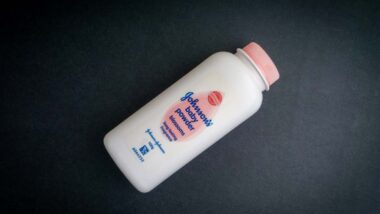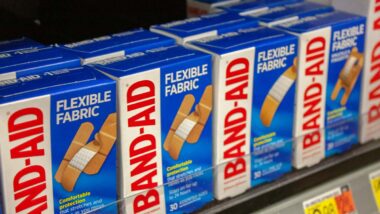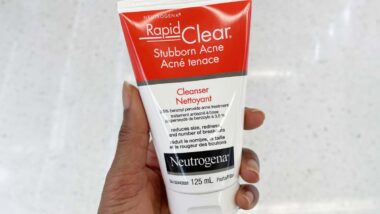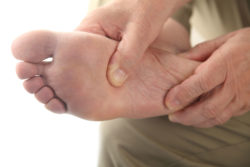 Johnson & Johnson is facing a growing multidistrict litigation consisting of product liability claims alleging serious injuries like Invokana diabetic amputations.
Johnson & Johnson is facing a growing multidistrict litigation consisting of product liability claims alleging serious injuries like Invokana diabetic amputations.
One of the most recent additions comes from a man from Illinois, alleging he had to undergo multiple Invokana diabetic amputations due to defects in this type-2 diabetes drug.
Plaintiff David K. alleges that Johnson & Johnson failed to warn him about Invokana diabetic amputations, which he says he had to undergo because the drug’s mechanism of action failed.
Like millions of other patients, David was prescribed Invokana to help manage his type-2 diabetes symptoms and was supposed to be used in conjunction with diet and exercise. Invokana is an SGLT2 inhibitor medication, which works by signaling the kidneys to expel excess sugar through urination.
This prevents the body from reabsorbing glucose, which keeps blood sugar levels from getting too high. Without enough insulin, the patient could be prone to a number of adverse type-2 diabetes symptoms including diabetic shock, nerve damage, and even amputations.
Overview of Invokana Complications
With these benefits in mind, David says he was prescribed Invokana in August 2013 and had used the medication according to prescription instructions and physician’s advice.
However, several years after his prescription started, David claims he had to undergo multiple Invokana diabetic amputations. According to the Invokana lawsuit, the first one occurred on Aug. 10, 2017, with the first toe of the right foot being amputated and later the whole lower right leg on Feb. 1, 2018.
Because of these serious medical procedures, David had to be hospitalized for a long period of time and had to undergo intense treatment during the recovery process. David opted to file legal action against Johnson & Johnson, after learning that the FDA warned of an increased risk of diabetic amputations for patients taking Invokana or other SGLT2 inhibitors.
The FDA’s announcement was made on May 16, 2017, with the agency stating that its researchers are unsure why Invokana is failing to prevent diabetic amputations in some patients. Along with causing issues in the body’s blood sugar levels, type-2 diabetes can also cause significant nerve damage in the legs and feet of the patient.
Swelling and ulcers in the feet and legs are fairly common type-2 diabetes symptoms caused by water retention, in which lower limb amputation is sometimes needed for the patient’s health. Medications like Invokana are supposed to lower the chances of this occurrence, but plaintiffs like David claim the drug allegedly caused the need for Invokana diabetic amputations.
David and other patients say they relied on the marketing statements and advertisements made by Johnson & Johnson, and did not have reason to be wary of the possibility of potential Invokana diabetic amputations. David states he would not have agreed to take the medication if he had known about the increased risk for Invokana diabetic amputations.
David’s Invokana lawsuit is joining MDL No. 2750, where it will stand alongside other claims from patients who also allege they had to undergo Invokana diabetic amputations. By joining an MDL, David’s claim will be streamlined through the litigation process and will avoid potential problems like conflicting rulings from different judges.
This Invokana Lawsuit is Case No. 3:18-cv-09717-BRM-LHG, in the U.S. District Court of New Jersey.
In general, Invokana and Invokamet lawsuits are filed individually by each plaintiff and are not class actions.
Do YOU have a legal claim? Fill out the form on this page now for a free, immediate, and confidential case evaluation. The attorneys who work with Top Class Actions will contact you if you qualify to let you know if an individual lawsuit or class action lawsuit is best for you. Hurry — statutes of limitations may apply.
ATTORNEY ADVERTISING
Top Class Actions is a Proud Member of the American Bar Association
LEGAL INFORMATION IS NOT LEGAL ADVICE
Top Class Actions Legal Statement
©2008 – 2025 Top Class Actions® LLC
Various Trademarks held by their respective owners
This website is not intended for viewing or usage by European Union citizens.
Get Help – It’s Free
Join a Free Invokana Class Action Lawsuit Investigation
If you or a loved one suffered ketoacidosis or lower extremity amputation after taking Invokana, Invokamet, or Invokamet XR, you may have a legal claim. See if you qualify to pursue compensation and join a free diabetes medication class action lawsuit investigation by submitting your information for a free case evaluation.
An attorney will contact you if you qualify to discuss the details of your potential case.
PLEASE NOTE: If you want to participate in this investigation, it is imperative that you reply to the law firm if they call or email you. Failing to do so may result in you not getting signed up as a client or getting you dropped as a client.
Oops! We could not locate your form.
ATTORNEY ADVERTISING
The choice of a lawyer is an important decision and should not be based solely on advertisements.
Counsel responsible for this advertisement includes Don Worley at:
McDonald Worley, P.C.
PAID ATTORNEY ADVERTISEMENT: THIS WEB PAGE IS AN ADVERTISEMENT AND THE PARTICIPATING ATTORNEY(S) ARE INCLUDED BECAUSE THEY PAY AN ADVERTISING FEE. It is not a lawyer referral service or prepaid legal services plan. Top Class Actions is not a law firm. Top Class Actions does not endorse or recommend any lawyer or law firm who participates in the network, nor does it analyze a person’s legal situation when determining which participating lawyers receive a person’s inquiry. It does not make any representation and has not made any judgment as to the qualifications, expertise or credentials of any participating lawyer. No representation is made that the quality of the legal services to be performed is greater than the quality of legal services performed by other lawyers. The information contained herein is not legal advice. Any information you submit to Top Class Actions does not create an attorney-client relationship and may not be protected by attorney-client privilege. Do not use the form to submit confidential, time-sensitive, or privileged information. All photos are of models and do not depict clients. All case evaluations are performed by participating attorneys.




